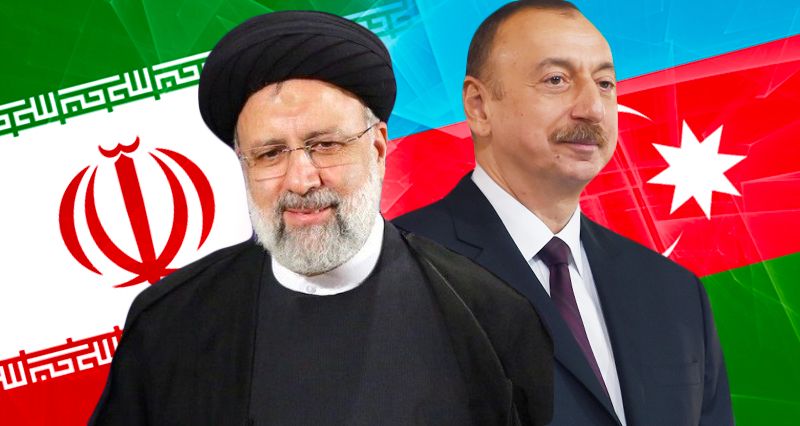Azerbaijan’s place in Iran’s chemo-brain

By Orkhan Amashov
Modern Iran is a prisoner of chemotherapy, with a constant need for venom to be jettisoned into its veins so as to feel reasonably fit and give the enemy within a warning. The latter is not a mere figment of a deluded imagination; there is a growing discontent, not necessarily driven by ethnic urges exclusively, but mostly by the theocratic regime’s own inherent incoherence, or rather, to be put it simply, the fundamental discrepancy between what Iran needs and the trajectory into which it has been thrown by its leadership.
One day, the walls of the temple will come down on the Islamic Republic, one way or another. The situation may culminate in a regime change or its fundamental reconstruction. But, before that, there will be a perilous journey, fraught with uncertainties and mutually exclusive interpretations of its nature; for now, the miscreant, if you forgive the word, is at a plateau and the rumours of its death are presently exaggerated. Massively exaggerated. There is life in the old dog yet.
It is not the height of bad manners to defend the indefensible, not in politics, at least. Iran’s former foreign minister Javad Zairif did this rather meticulously, earning unofficial accolades for his emollience and suaveness whilst fulfilling the role of the nation’s chief interlocutor with the world at large. His importance did not lie in his influence over Tehran’s decisions, but in his competence in shaping perceptions of Iran.
It is difficult to ascertain with any degree of certainty if what is happening today is leading to a tipping point anytime soon, for tipping points can truly only be appreciated in hindsight, where vision is always 20/20. As in the case of the Soviet Union, it is prone to internal implosion. Amongst likely probabilités, this has always ranked high.
Nevertheless, there is also a distinct question of how growing discontent could lead to something tangible. The pressure cooker of fury inside the country may look uncontrollable, but it is controlled, as for Tehran, repression is an art form. Any form of socio-political discontent, however large, is measured not solely by its breadth, but also by its depth. By the latter, in the context of modern Iran, we usually understand a fine mélange of two sets of circumstances, namely the organisational scale of people ready to sacrifice their lives for what may be called a significant change and possible fissures within the security forces.
On both accounts, one cannot see that the momentum is there. It may only be roughly hewn from rock or be in the process of being formed. As far as one can tell, recurrent moments of abrupt relief within the ongoing angst cannot be denied to Tehran. It appears more than capable of plodding on.
Iran’s chemo-brain, rather understandably, is averse to a state of serenity. Now, there is a tremendously cramped and mean-spirited sensibility, evidently experienced by Tehran, that being more savage to Azerbaijan will help its quest for salvation. This is one aspect of its blighted brain that is worthy of closer inspection, albeit, on this occasion, only within the perimeters of externally observable foreign policy moves involving the two states.
Azerbaijan does not expect Iran to cow before it in a sycophantic way. It has a sense of proportion. It is conscious of its augmented capabilities for standing up to a neighbour which found its influence in the South Caucasus significantly reduced or challenged, at least. With Russia’s clout gradually receding and Turkish presence incrementally assuming a greater deal of significance in the region, the new geopolitical balance allows Baku to make Tehran uncomfortable in a way that the latter has never felt hitherto during the course of the past three decades.
Here, we need to address the coherence of what Azerbaijan says. Baku has never questioned Iran’s territorial integrity and this has not changed over the past few months. On 25 November, whilst addressing participants of an international conference at ADA, President Aliyev made it clear that voicing concerns over the cultural and linguistic rights of the 35 million Azerbaijanis living in Iran does not amount to any form of interference.
Two aspects should be born in mind to understand Baku’s increased assertiveness vis-à-vis Tehran. It is all about the “timing”, entailing two linchpins, which could be envisioned as the Iranian discomfiture induced by the post-2020 war situation and Azerbaijani coerciveness in pursuing its national interests. First of all, it is Iran that behaves as a “reactionary” in relation to the gradually entrenched new order, given rise to by the Azerbaijani victory in 2020, backed up by strong and unprecedented Turkish support. Tehran’s opposition to the Zangazur Corridor project and disinclination to adjust to the new configuration have also revealed the true colours of its historic disdain for Azerbaijan, rendering the latter’s responsiveness.
Secondly, Azerbaijan has chosen its words with an eye to proportionate judiciousness. It has never crossed a liminal line putting itself in the wrong. Tehran’s official rhetoric, aimed at Baku, has never been so vehement hitherto, with its military drums reaching the zenith of dowdy vengeance. Therefore, there is a cumulative mass of factors linked to Iran’s overt perception of Azerbaijan, that serves to augment the legitimacy of the latter’s sense of historic duty regarding Iran’s ethnic Azerbaijani population.
It is vital that, at this historic juncture, the sheer importance of which we may not currently appreciate to the fullest extent, we conflate our emotions with our analysis in such a way that is predominantly shaped by cold reason. So, it is with this sensibility that this submission is purported to be concluded. Never before has independent Azerbaijan stood so tall and courageous against the two neighbouring nations - Iran and Russia - that impacted its history in such a monstrously deformative way. It is the sense of doing the right thing at a given moment that guides its actions. Iran will continue to struggle, whereas Azerbaijan will remain jealously protective of its independence, displaying a sense of rising confidence in the air with reinvigorated assertiveness. Of these two fates, be in no doubt.
As Neil Watson, British journalist, commented: “Post-2020 Azerbaijan is a country reborn. The wrongs of the past are being righted. The reset button has been pressed. Those who smite Azerbaijan will be taken like lambs to the slaughter. Azerbaijan is the new fulcrum for the South Caucasus and has all to gain.”
---
Follow us on Twitter @AzerNewsAz
Here we are to serve you with news right now. It does not cost much, but worth your attention.
Choose to support open, independent, quality journalism and subscribe on a monthly basis.
By subscribing to our online newspaper, you can have full digital access to all news, analysis, and much more.
You can also follow AzerNEWS on Twitter @AzerNewsAz or Facebook @AzerNewsNewspaper
Thank you!

